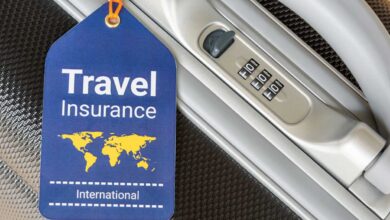The Comprehensive Guide to Finding the Best Liability Insurance for Small Businesses

The Comprehensive Guide to Finding the Best Liability Insurance for Small Businesses
Starting and running a small business is a significant endeavor that comes with its fair share of risks. While entrepreneurs focus on growth and success, it’s essential to consider the potential threats that could jeopardize the business’s financial stability. Liability insurance for small businesses plays a crucial role in protecting against various liabilities and unforeseen events. In this comprehensive guide, we will explain everything you need to know about finding the best liability insurance for your small business.

Understanding Liability Insurance
Liability insurance is a type of coverage that protects businesses from legal claims and financial obligations resulting from accidents, injuries, or negligence. For small businesses, this insurance is often a lifeline, as it can help cover legal fees, settlements, and other costs that could otherwise cripple the company. Liability insurance typically falls into several categories:
- General Liability Insurance: This coverage protects against claims related to bodily injuries, property damage, and advertising injuries. It’s a fundamental policy for most small businesses, as it provides broad protection.
- Professional Liability Insurance: Also known as Errors and Omissions (E&O) insurance, this type of coverage is crucial for service-based businesses. It protects against claims of negligence, errors, or omissions in professional services.
- Product Liability Insurance: If your business manufactures or sells products, this insurance safeguards you against claims arising from product defects or injuries caused by your products.
- Cyber Liability Insurance: In today’s digital age, cyber threats are a real concern. Cyber liability insurance helps protect your business from data breaches, cyberattacks, and associated legal and financial liabilities.
- Commercial Auto Insurance: If your business uses vehicles for any purpose, this insurance covers accidents and damages involving those vehicles.
Determining Your Coverage Needs
The first step in finding the best liability insurance for your small business is to assess your coverage needs. Consider the nature of your business, the industry you operate in, and the potential risks you face. A restaurant, for example, would have different liability concerns than a graphic design studio. Consulting with an insurance agent or broker can be immensely helpful in this process, as they can provide tailored advice based on your specific circumstances.

Factors to consider when determining your coverage needs include:
- Business Type: Different industries have varying risks. Retailers may need more general liability coverage, while consultants might require professional liability insurance.
- Business Size: The size of your business, including revenue and number of employees, can influence the coverage you need.
- Location: Your business’s location can impact the risks you face. For example, a business located in a flood-prone area may need additional coverage.
- Contracts and Agreements: Some clients or partners may require specific insurance coverage as a condition of doing business with you.
- Industry Regulations: Certain industries have regulatory requirements for insurance coverage. Make sure to comply with any relevant regulations.
- Risk Tolerance: Your personal risk tolerance may influence the level of coverage you choose. Some businesses opt for higher coverage limits to minimize personal liability.

Choosing the Right Insurance Provider
Once you’ve determined your coverage needs, it’s time to choose the right insurance provider. Here are some essential considerations when evaluating insurance companies:
- Reputation: Research the insurer’s reputation by reading reviews, checking with industry associations, and seeking recommendations from peers.
- Financial Stability: Ensure the insurer is financially stable and capable of paying claims. You can check their financial ratings from agencies like A.M. Best and Standard & Poor’s.
- Coverage Options: Compare the coverage options, limits, and deductibles offered by different insurers to find a policy that suits your needs and budget.
- Customer Service: Good customer service is essential, especially when you need to file a claim. Look for an insurer known for responsive and helpful customer support.
- Cost: While cost is a significant factor, it should not be the sole determinant. Balance affordability with the coverage you need to adequately protect your business.
- Claims Handling: Research the insurer’s claims process and how efficiently they handle claims. A smooth claims process can make a significant difference in a time of need.

Conclusion
Liability insurance is a vital component of a comprehensive risk management strategy for small businesses. It provides protection against various liabilities and potential financial catastrophes. To find the best liability insurance for your small business, start by understanding your coverage needs, evaluating potential risks, and determining your budget. Consult with insurance professionals to tailor your coverage to your specific circumstances. Finally, choose a reputable insurance provider that offers the right coverage, excellent customer service, and a solid financial standing. By taking these steps, you can safeguard your small business and focus on achieving your entrepreneurial goals with peace of mind.



